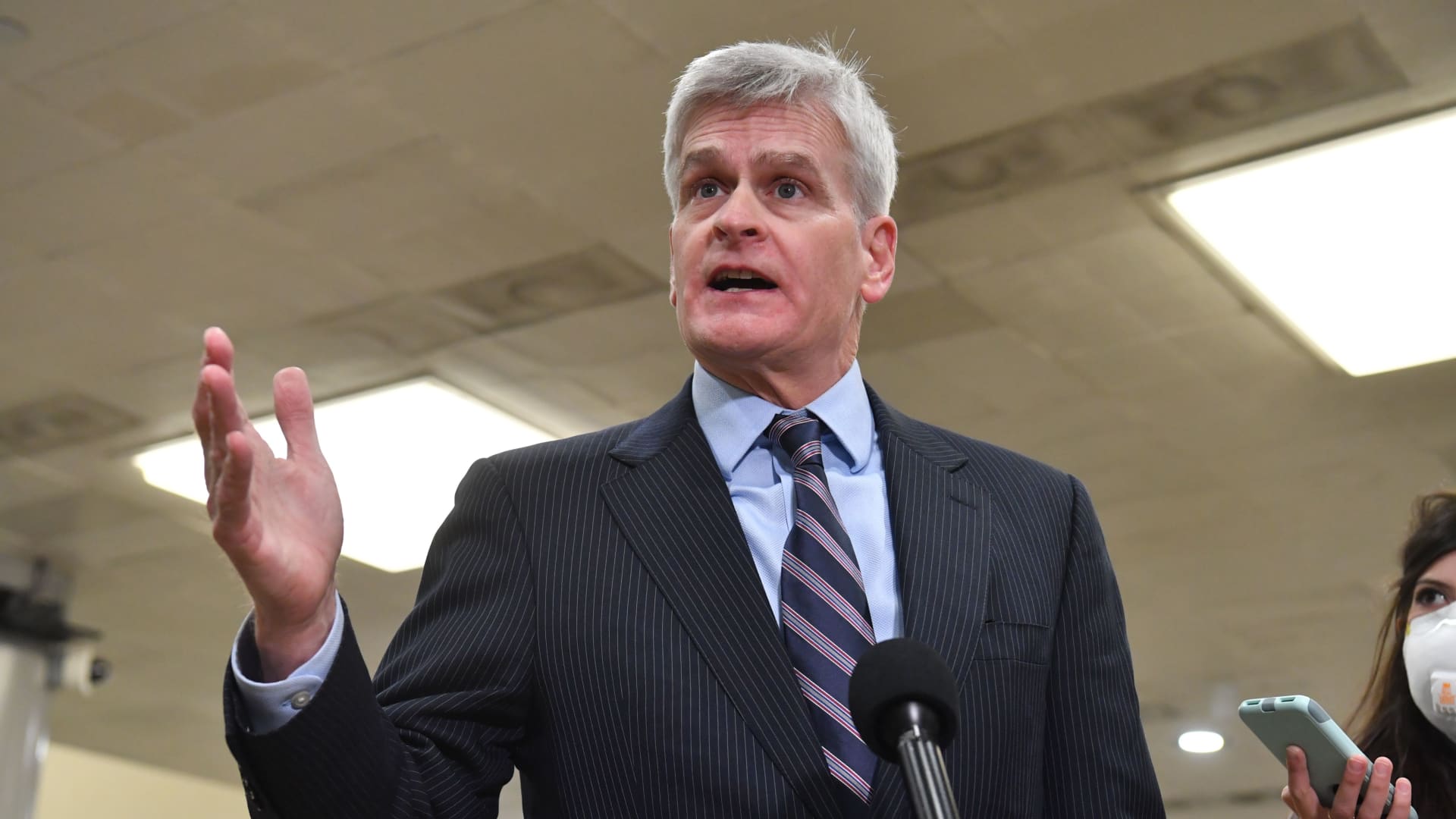
- President Joe Biden called for protecting Social Security and Medicare in last year's State of the Union.
- As the program's face imminent insolvency dates, experts this year say they hope to see action.
Last February, thousands of seniors sent letters with the AARP to President Joe Biden ahead of his annual State of the Union address. Their message: "Urge Congress to keep their hands off our Social Security and Medicare."
Those efforts worked.
Biden used his annual speech as an opportunity to get both Republicans and Democrats to not make any cuts to those programs.
Get top local stories in Philly delivered to you every morning. >Sign up for NBC Philadelphia's News Headlines newsletter.
"So folks, as we all apparently agree, Social Security and Medicare is off the books now, right?" Biden said, which was met with cheers. "We've got unanimity."
More from Personal Finance:
Millionaires may have hit their 2024 Social Security payroll tax limit
78% of near-retirees failed or barely passed a basic Social Security quiz
Many Americans believe pensions are key to achieving the American Dream
Biden is set to deliver his annual State of the Union speech this week following Super Tuesday results that point to a contest with former President Donald Trump in November.
Money Report
Trump has similarly promised not to touch the programs.
Yet as both Social Security and Medicare face insolvency dates within the next decade, leaders on both sides of the aisle are hoping for action.
How Democrats propose tackling Social Security's woes

That includes Rep. John Larson, D-Conn., who has led a Democratic bill aimed at expanding benefits for the first time in more than 50 years.
His bill — Social Security 2100 Act — would include a 2% across-the-board benefit increase, as well as more generous benefits for low-income seniors, and other enhancements. Those benefit boosts would be paid for by making it so earnings over $400,000 are subject to Social Security payroll taxes. Currently, up to $168,600 in earnings are subject to those levies.
In addition, the bill would also add a 12.4% net investment income tax for taxpayers earning more than $400,000.
Larson's Social Security proposal currently has almost 200 House co-sponsors, with companion legislation in the Senate. But it has yet to be voted on.
"The fact that there hasn't been votes on something as critically important to 70 million Americans as Social Security is … why isn't there a vote?" Larson said in an interview with CNBC at his Washington, D.C., office last week.
It's a question Larson has faced as he touts his plan at town halls.
"The honest answer is because they did health care," Larson said, referring to the Affordable Care Act, which was signed into law by President Barack Obama in 2010.
At the time, there was a question as to whether to focus on Social Security instead.
"Did I advocate it? Absolutely. Was I as disappointed as you? Absolutely," Larson said he recently told a town hall attendee. "But do you give up? Do you just say, 'Oh well, it can't be done?'"
To help make his case with fellow Democrats and Republicans across the aisle, Larson hands out copies of Social Security cards to each member with the number of benefit recipients in their district and the total amount of monthly benefits they receive. In Larson's district, there are around 147,662 beneficiaries, most of whom are retirees, receiving $270 million in monthly benefits.
As the U.S. population hits "peak 65" — with the most Americans in history expected to turn 65 through 2027 — Larson is hoping that will help inspire lawmakers to act.
"The Republicans are going to say we're raising taxes," Larson said.
But Larson said the focus instead should be on the size of the benefits that Social Security beneficiaries may receive that they won't be able to match elsewhere on the private market. "Look at the benefit that they receive for this," he said.
Another proposal led by Sens. Elizabeth Warren, D-Mass., and Bernie Sanders, I-Vt., similarly aims to make benefits more generous, raise taxes on the wealthy (this time on those earning more than $250,000) and extend Social Security's solvency.
The report comes as a Senate report found nearly half of Americans 55 and older have no retirement savings. Meanwhile, 52% of those ages 65 and older are living on less than $30,000 per year.
Why raising payroll taxes may not be enough

House Republicans are focusing on other efforts to create a bipartisan fiscal commission that would evaluate Social Security, Medicare and other government spending.
Democrats and advocacy groups representing retirees worry that could lead to detrimental cuts to benefits.
But Republicans and fiscal experts contend there are not a lot of other choices.
"If you wanted to tax people who make over $400,000, you really can't fill the hole," Sen. Bill Cassidy, R-La., said during a retirement industry event in Washington, D.C., last week.
Those tax thresholds are going to create such high tax rates that it becomes "self-defeating," said Cassidy. The Louisiana senator is working on his own "big idea" fix to create a separate investment fund to help remedy Social Security's shortfall.
Social Security may only pay full benefits until 2034, at which point there may be 23% benefit cuts. That would amount to a $17,400 cut for a typical couple who retires in 2033, according to the Committee for a Responsible Federal Budget.
Social Security is not the only program that may require tax increases. The Medicare hospital insurance trust fund may only pay full benefits until 2031, based on recent projections. Shoring up that program's finances may require payroll tax increases in addition to those proposed for Social Security.
"You can only raise [taxes] so many times," said Maya MacGuineas, president of the Committee for a Responsible Federal Budget.
Lawmakers should carefully weigh the best use of the country's resources, she said.
"I probably wouldn't put pension benefits for people who don't need them at the top of my list," MacGuineas said. "At the top of my list, I would put pensions for people who do."
As voters head to the polls in November, they will be choosing a leader who influences the program's fate.
AARP plans to continue to put pressure on the candidates by asking each one, "What's your position on Social Security?" Nancy LeaMond, executive vice president and chief advocacy and engagement officer, said on a recent press call.
Don't miss these stories from CNBC PRO:
- Instead of chasing Nvidia, investor buys these misunderstood, cheap growth stocks for big returns
- Why Warren Buffett thinks the power of compound interest is the key to his success
- Forget cash — it's time to move into fixed income, Franklin Templeton strategist says
- Dan Niles reveals why he prefers the 'Fantastic Four' and when the 'AI bubble' might pop
- Investors should tread carefully in March after bitcoin's explosive rally to $60,000






